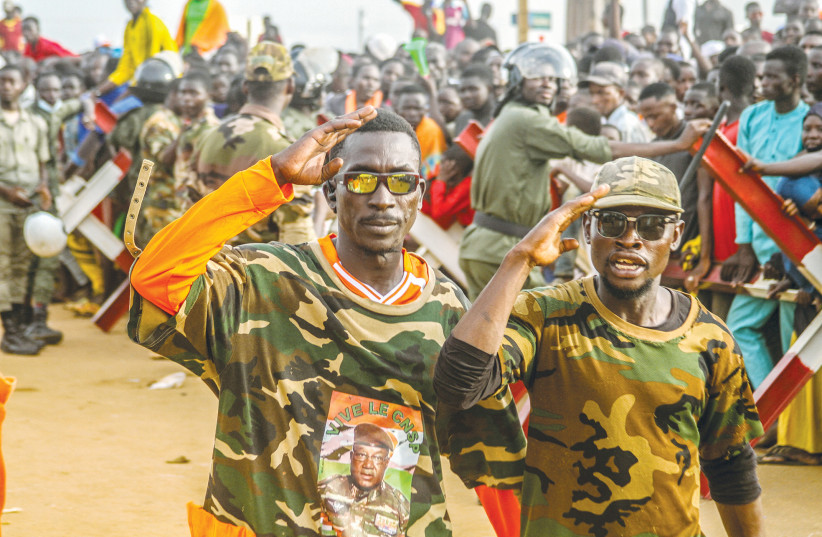Reports over the weekend indicate that escalation could take place in Western Africa between the group of countries known as the Economic Community of West African States (ECOWAS) and Niger. Niger recently had a military coup, one of several countries to have had a coup in that region in recent years. Niger is very important because it has been a frontline against extremism and destabilization in the Sahel.
The US has supported Niger and has located a drone base there. The United State's support has gone back many years and in 2017 several US military personnel were killed supporting Niger's military.
The Associated Press noted on Saturday that the US was considering evacuating the drone base in Niger and other US backed facilities. However, the wider picture has to do with how ECOWAS has not been able to come to an agreement with the coup leaders in Niver. They also want the former president of Niger, President Mohamed Bazoum, who was overthrown, to be released.
“We are ready to go any time the order is given,” ECOWAS Commissioner for Political Affairs, Peace and Security Abdel-Fatau Musah said during the closing ceremony of a two-day meeting of West African army chiefs in Ghana’s capital, Accra, Al-Jazeera noted. The report speaks of a “D-Day” as if an invasion could take place.

The ECOWAS member states and potential conflicts
There are 15 ECOWAS member states. However, some of them would likely side with Niger. For instance, Mali appears to support Niger. There are wider issues at work here. Mali has ties with Russia and Iran. This means that the ECOWAS intervention would be seen as western backed, in fact it could be accused of somehow being linked to the former colonial powers like France. Would Burkina Faso, Mali and others back Niger against an intervention? This is clearly the picture that is emerging.
If a number of countries in West Africa go to war, this would be an unprecedented conflict in the region. It already comes amid alarming upticks in instability across the Sahel, from Sudan to Senegal.
In the end, any confrontation would put a spotlight on whether some of the militaries in the region have benefited from Western or US backing in recent years. It could lead to a domino affect where these countries seek to roll back other authoritarians. However, on the other hand, it could lead to more civil conflicts across West Africa and the Sahel.
It could be that ECOWAS is emboldened by the crisis in Ukraine and the Pacific. For much of the post-independence era, most African states eschewed intervention in each other’s affairs. This had to do with many factors, but one of which was a sense that these countries had already suffered intervention at the hand of colonial powers. During the Cold War there were conflicts, such as in Angola, or the Congo, and in Biafra in Nigeria. However, there were few wars between states; the Tanzania-Uganda war, during Idi Amin’s brutal reign, was an exception. Other conflicts included the fight for South Sudan independence and the Eritrea-Ethiopia war, as well as the Rwandan genocide and its aftermath in eastern Congo.
Recent decades have seen a rise in extremist groups across the Sahel; like the rise of Boko Haram in Nigeria. These groups destabilized this whole area.
When long-time authoritarians such as Qadafi or Bashir in Sudan were toppled, more destabilization emerged. Now this new round suggests that state-vs-state conflicts may emerge, as these countries feel emboldened by the changing world order.
This directly impacts the Middle East because of the role the Arab League has in Sudan and also the role that the Sahel has in emerging threats that can influence the Gulf and empower Iran or Russia.
